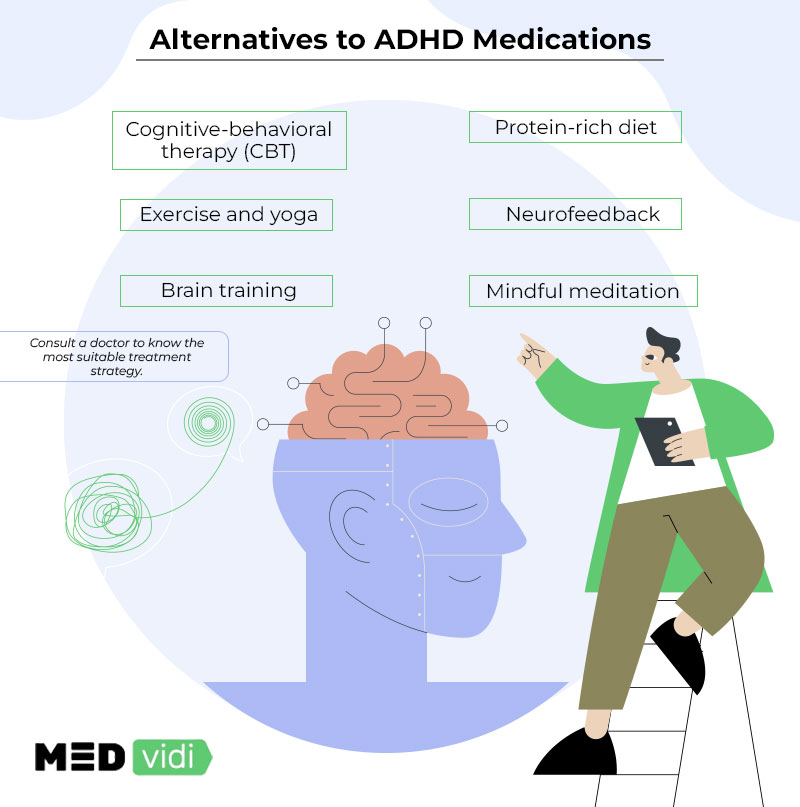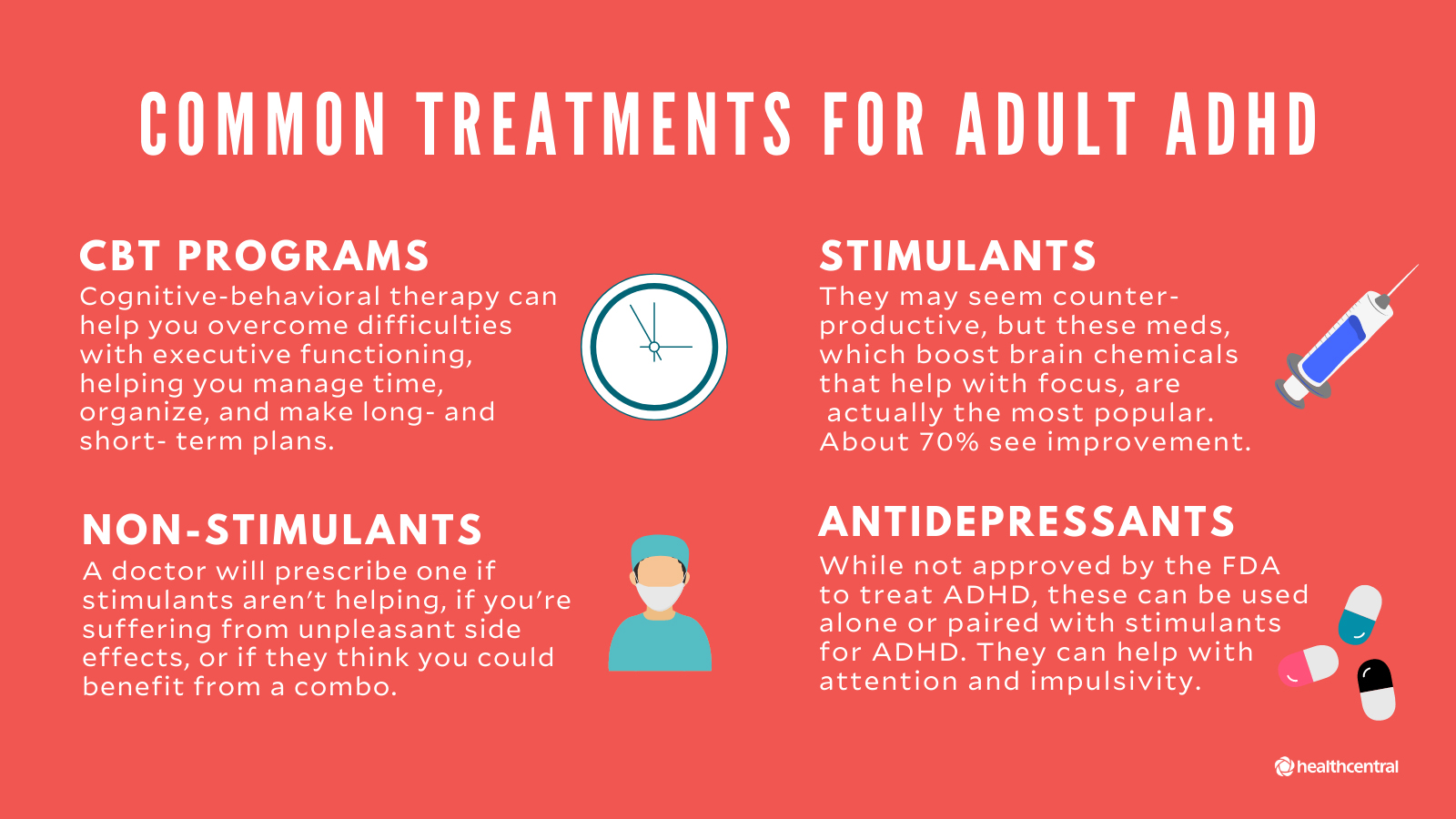Your Guide to Locating the Right ADHD Therapy for Long-term Outcomes
Navigating the intricacies of ADHD therapy calls for a nuanced understanding of both the problem and the myriad choices offered for effective management. It is vital to identify that what jobs for one person may not always produce the same results for one more. Therefore, a tailored method-- incorporating professional support, drug, behavioral methods, and way of living changes-- becomes vital. The journey towards determining the most appropriate treatment plan can be laden with difficulties. What are the key factors that affect successful results, and exactly how can people guarantee they are on the appropriate path?
Recognizing ADHD and Its Impact

In adults, ADHD can lead to obstacles in office environments, influencing performance, time administration, and social relationships. Usually, undiagnosed or incorrectly managed ADHD can add to co-occurring psychological health concerns, such as stress and anxiety and clinical depression, more making complex an individual's overall wellness.
The social understanding of ADHD can differ, bring about stigma and misconception, which might prevent people from seeking help. As understanding expands, it is necessary to foster a setting that advertises understanding and assistance for those impacted by ADHD, highlighting the requirement for precise diagnosis and customized strategies to minimize its influence on day-to-day life.
Summary of Therapy Alternatives
A thorough strategy to dealing with ADHD incorporates a variety of options tailored to the individual's distinct needs. These alternatives can extensively be classified right into behavioral treatments, psychoeducation, and way of life alterations, along with pharmacological therapies that may be checked out later.
Behavioral interventions, such as cognitive-behavioral treatment (CBT), concentrate on modifying details behaviors and creating coping approaches to handle signs properly. Psychoeducation plays an essential role in empowering both individuals and their households by giving info about ADHD, its challenges, and efficient strategies for support.
Lifestyle adjustments can dramatically influence ADHD administration. Regular exercise, a balanced diet regimen, and ample rest add to general health and symptom control. Mindfulness methods and relaxation techniques can likewise boost focus and lower impulsivity.
Support system and family therapy can foster a feeling of area and understanding, assisting individuals feel less separated in their experiences. Each treatment choice need to be taken into consideration together with the individual's choices and conditions, guaranteeing an alternative method that promotes long-lasting success. websites Inevitably, the objective is to develop an individualized therapy plan that deals with the specific challenges connected with ADHD while boosting general top quality of life.
Medication: Pros and Cons
Medication plays a crucial role in the treatment of ADHD, with countless options available that can significantly alleviate signs for several individuals. Stimulants, such as methylphenidate and amphetamines, are commonly recommended and have actually shown effectiveness in enhancing focus, decreasing impulsivity, and enhancing total habits. These medicines work by increasing dopamine and norepinephrine degrees in the brain, which are commonly dysregulated in those with ADHD.
Some individuals might experience side effects, consisting of sleeplessness, lowered hunger, or increased stress and anxiety. Furthermore, not all clients respond to energizer drugs, leading some to explore non-stimulant alternatives, which may have a delayed onset of activity or various side effects.
It is necessary for individuals and their households to consider these pros and cons thoroughly. Stabilizing the advantages of symptom monitoring versus prospective adverse effects is critical for achieving ideal therapy end results. Partnership with medical care providers can facilitate enlightened choices, making sure that medication is part of a thorough ADHD monitoring strategy.
Behavior Therapy Strategies

One generally utilized approach is Cognitive Behavior modification (CBT), which helps people recognize and change adverse idea patterns that add to ADHD-related obstacles. Therapist for ADHD. Via CBT, customers learn to establish realistic goals, take care of time efficiently, and develop organizational systems
Another effective method is Parent Administration Training (PMT), which educates parents on how to strengthen positive habits and decrease negative ones through regular technique and interaction methods. This technique fosters an encouraging home atmosphere that urges behavioral enhancements.
Social abilities training is additionally essential, aiding people with ADHD browse social communications better. Role-playing and modeling proper behaviors can boost social competence and reduce stress and anxiety in social anonymous situations.
Way Of Life Adjustments for Better Administration
Just how can way of life adjustments substantially boost the monitoring of ADHD symptoms? Applying calculated lifestyle modifications can result in substantial improvements in focus, organization, and psychological law for individuals with ADHD.
Firstly, establishing an organized day-to-day regimen helps in developing predictability, which can ease feelings of overwhelm. Consistent schedules for meals, study, and rest can boost daily functioning.
Integrating routine physical task is likewise important, as exercise has been revealed to enhance dopamine levels, improving attention and inspiration (Therapist for ADHD). Intending for at least thirty minutes of modest workout most days can be helpful
Nutrition plays a critical duty. A well balanced diet rich in omega-3 fatty acids, whole grains, and healthy protein can sustain cognitive feature. Restricting refined sugars and caffeine might reduce signs, as these can result in power collisions and irritation.
Verdict
To conclude, finding the appropriate ADHD therapy requires a multifaceted strategy that considers specific requirements and preferences. A mix of medicine, behavior therapy, and lifestyle alterations can considerably boost sign management and total well-being. Taking part in psychoeducation and establishing structured regimens further supports reliable why not try these out treatment strategies. Collaboration with healthcare experts and open interaction with assistance networks are vital components in browsing the complexities of ADHD monitoring, eventually causing long lasting outcomes and enhanced quality of life.